1. The ski pullover’s role in the three-layer technique
The three-layer technique is based on a simple principle, where each layer has a well-defined function in regulating body temperature, managing moisture and protecting from the elements:
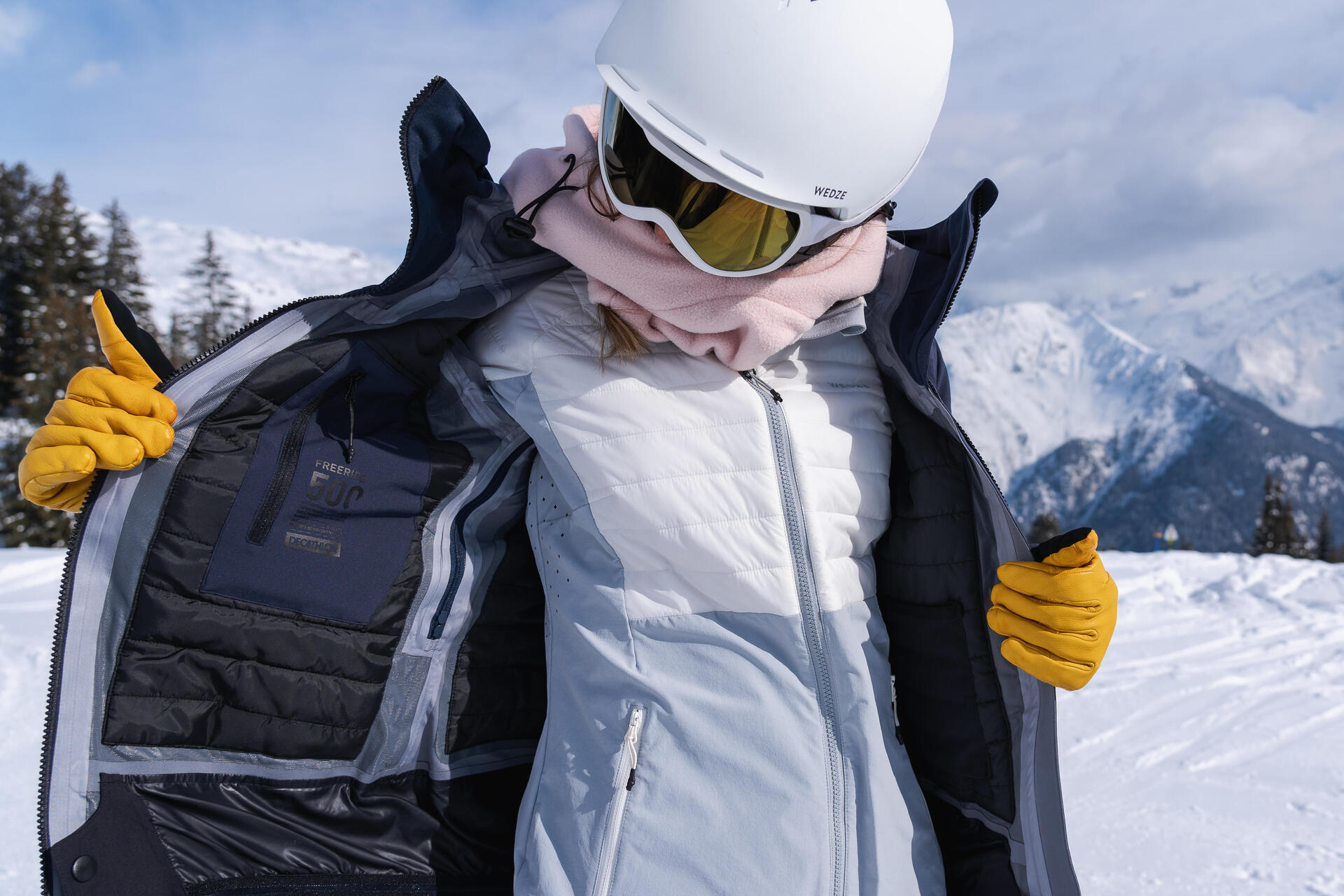
In winter sports, the ski pullover plays a key role as the middle layer in a three-layer system. Its main purpose is to provide warmth, while also being breathable, so it wicks away the moisture generated by perspiration. Have we helped you to make your choice?
The three-layer technique is based on a simple principle, where each layer has a well-defined function in regulating body temperature, managing moisture and protecting from the elements:
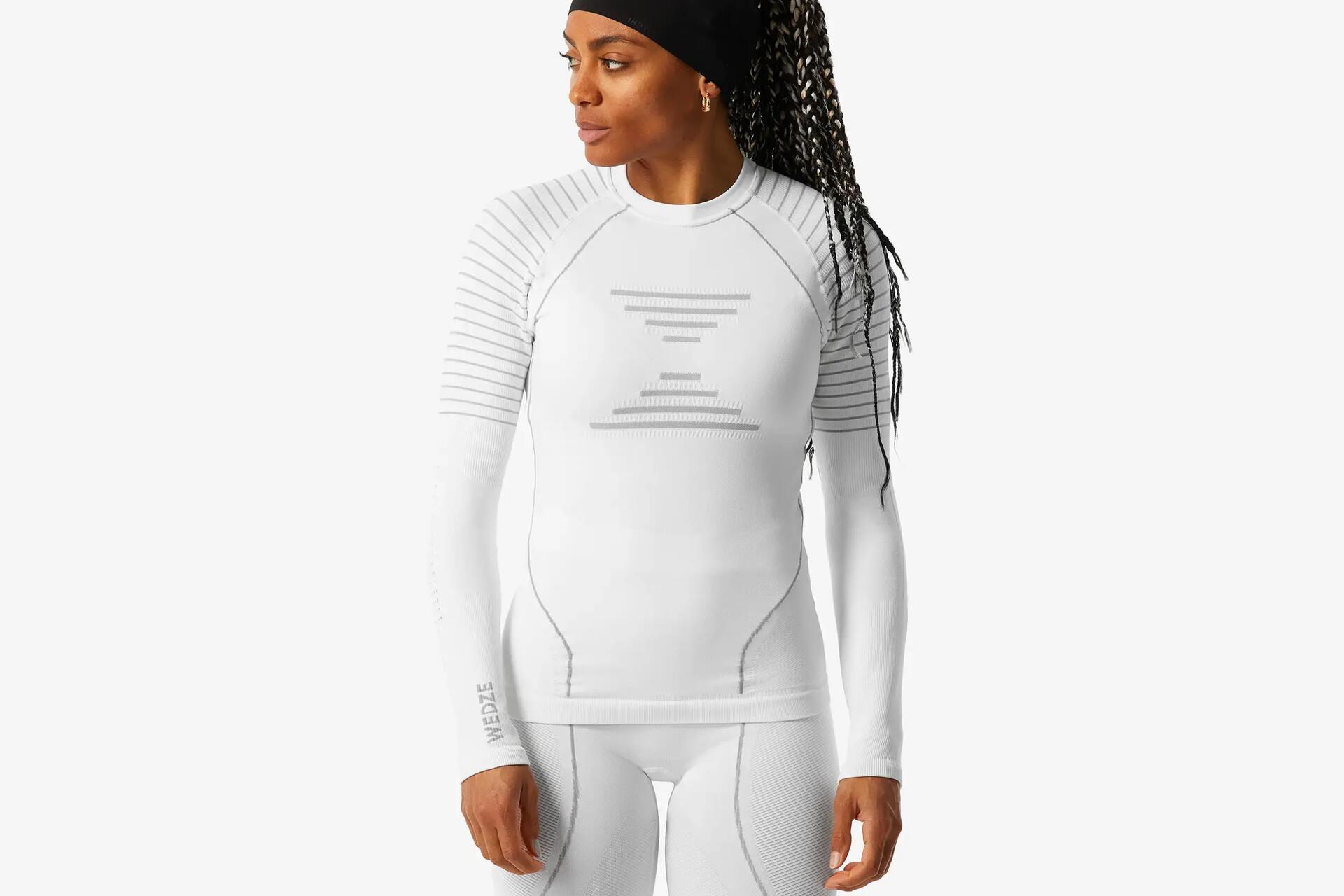
➤ First layer:
In contact with the skin, this layer must be breathable and capable of wicking away moisture rapidly, to keep the body dry. It plays a vital role in regulating body temperature by preventing the accumulation of sweat which could heighten the feeling of being cold. This is a thermal base layer, which can be worn on both the top and the bottom of the body.

➤ Second layer:
This is where the ski pullover, down jacket or fleece comes into the picture. The main role of this layer is to insulate, in other words, retain body heat while continuing to wick away moisture towards the outer layer. The fabrics used for ski pullovers are particularly effective in trapping heat, while also allowing air to circulate. This prevents overheating and guarantees optimal comfort, even during intense physical activity. By maintaining the right body temperature, this layer helps to prevent the discomfort associated with the cold, especially while on breaks or on downhill runs.
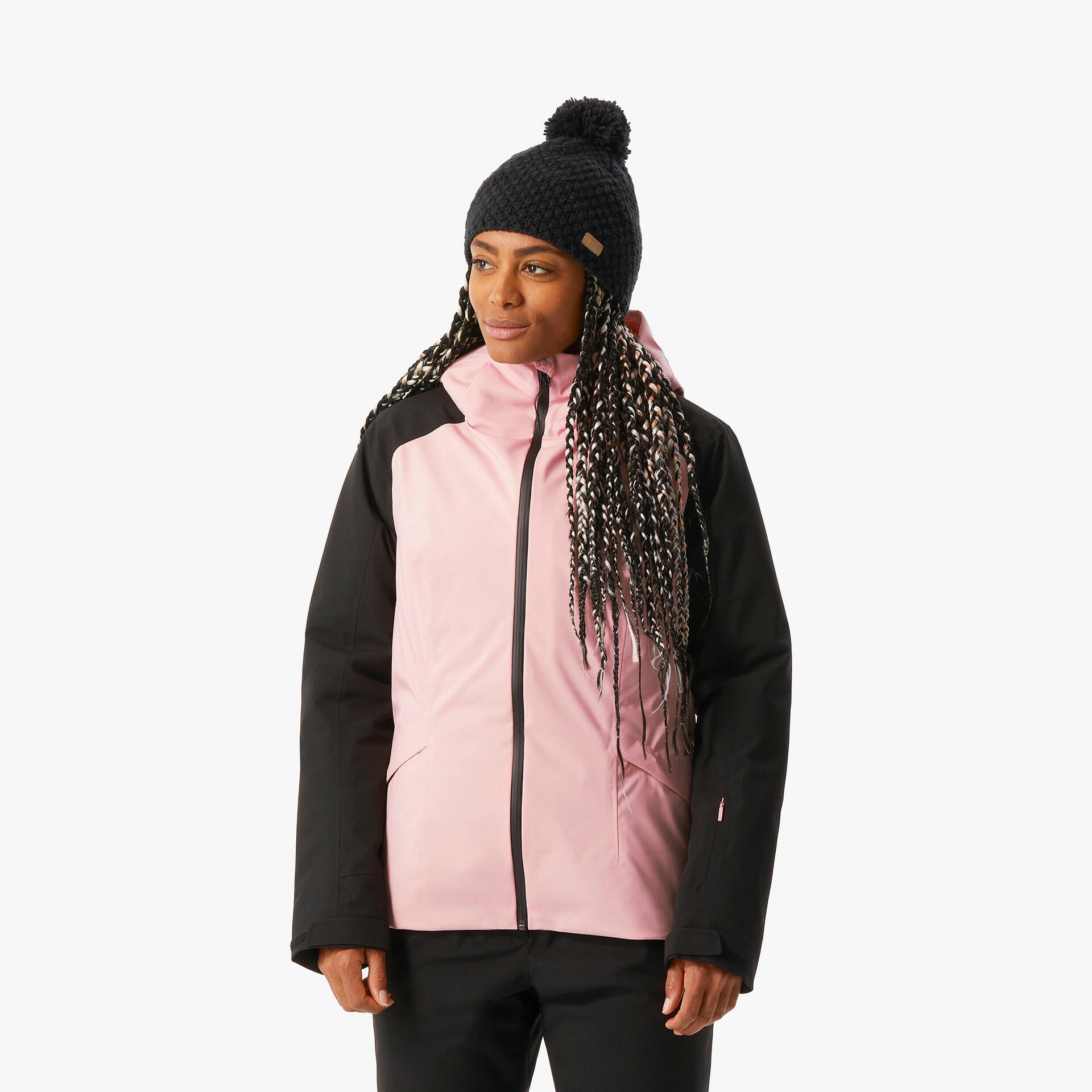
➤ Third layer:
This last layer is the famous ski jacket. Waterproof and warm, it allows the warmth generated by the other two layers to be preserved, and especially protects you from harsh outside weather conditions including wind, snow and rain.
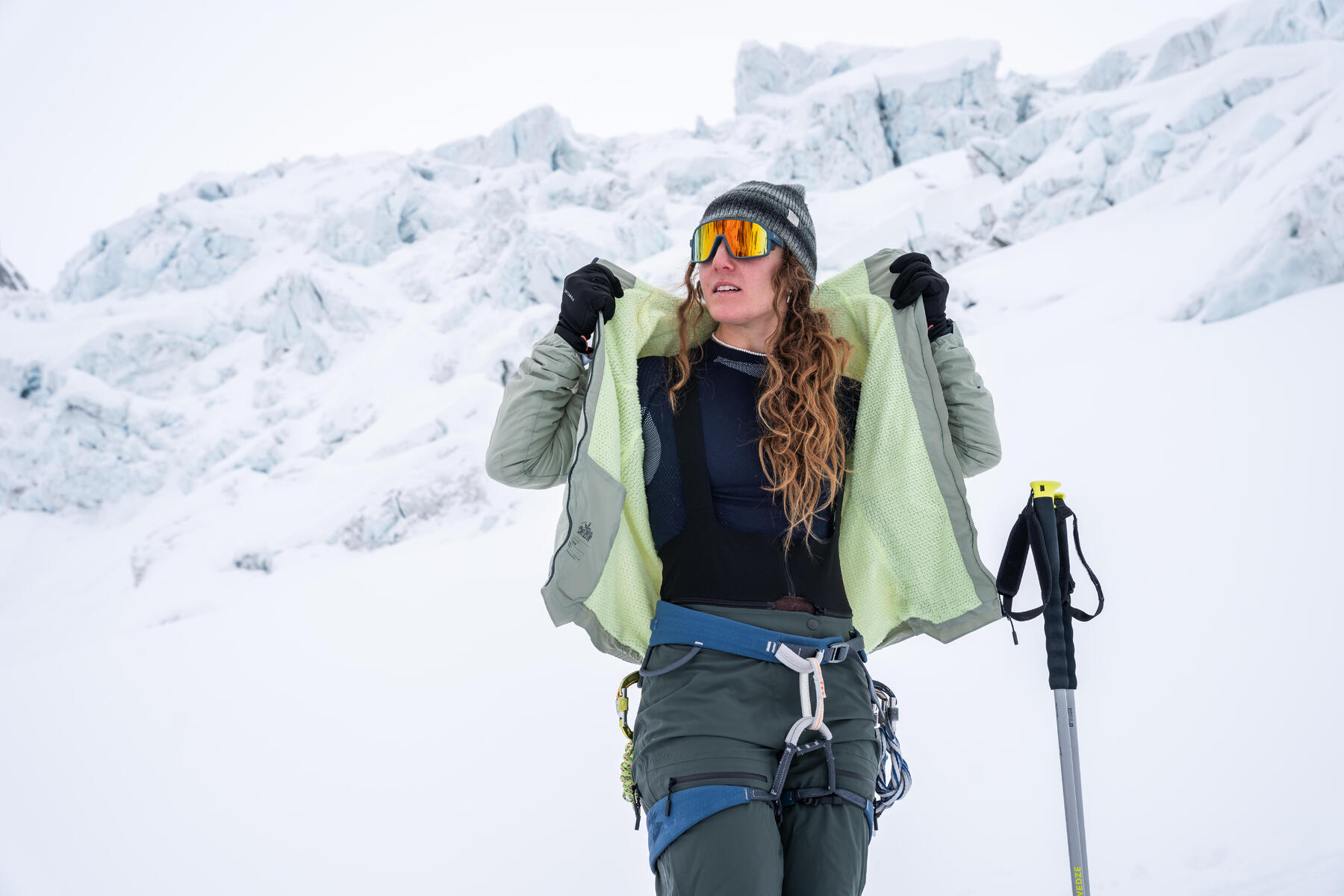
➤ Warmth
As indicated above, the ski pullover plays a key role in guaranteeing both thermal insulation and breathability. Its main purpose is to retain body heat while allowing warm air to circulate around the body, in this way forming a barrier against the outside cold. This function is vital to prevent the loss of heat, in particular at altitude or in very cold weather conditions.
➤ Breathability
At the same time, a good ski pullover is designed to be breathable, in other words, it wicks away the body moisture generated during physical activity, such as perspiration. This allows you to stay dry, even during intense physical activity, preventing the feeling of dampness which can make the body feel cold.
The second ski layer is mainly comprised of technical materials able to retain warmth while wicking away moisture. Here are the main fabrics selected for them:
This blend is often used to design adjustable and stretchable ski under garments. The polyester adds lightness and breathability, while the elastane offers great elasticity, favouring freedom of movement. This type of fabric dries quickly and offers good abrasion-resistance.
The softshell is a hybrid material combining insulating properties, breathability and wind protection. Often used for the more technical middle layer, it’s particularly prized for its ability to withstand harsh weather conditions, and its flexibility.
Fleece is one of the most widely-used materials for second layers. It is lightweight, breathable and offers excellent thermal insulation while quickly wicking away perspiration. Its synthetic fibre structure makes it possible to create heat-retaining micro-pockets of air, while also allowing moisture to escape.
Down is particularly well suited to cold weather conditions owing to its excellent warmth/weight ratio. Down traps air, creating an insulating barrier against the cold, while remaining compressible and light. However, it loses its insulating efficacy when wet, which makes it less suitable for wet conditions, or intense levels of physical activity with a lot of perspiration.
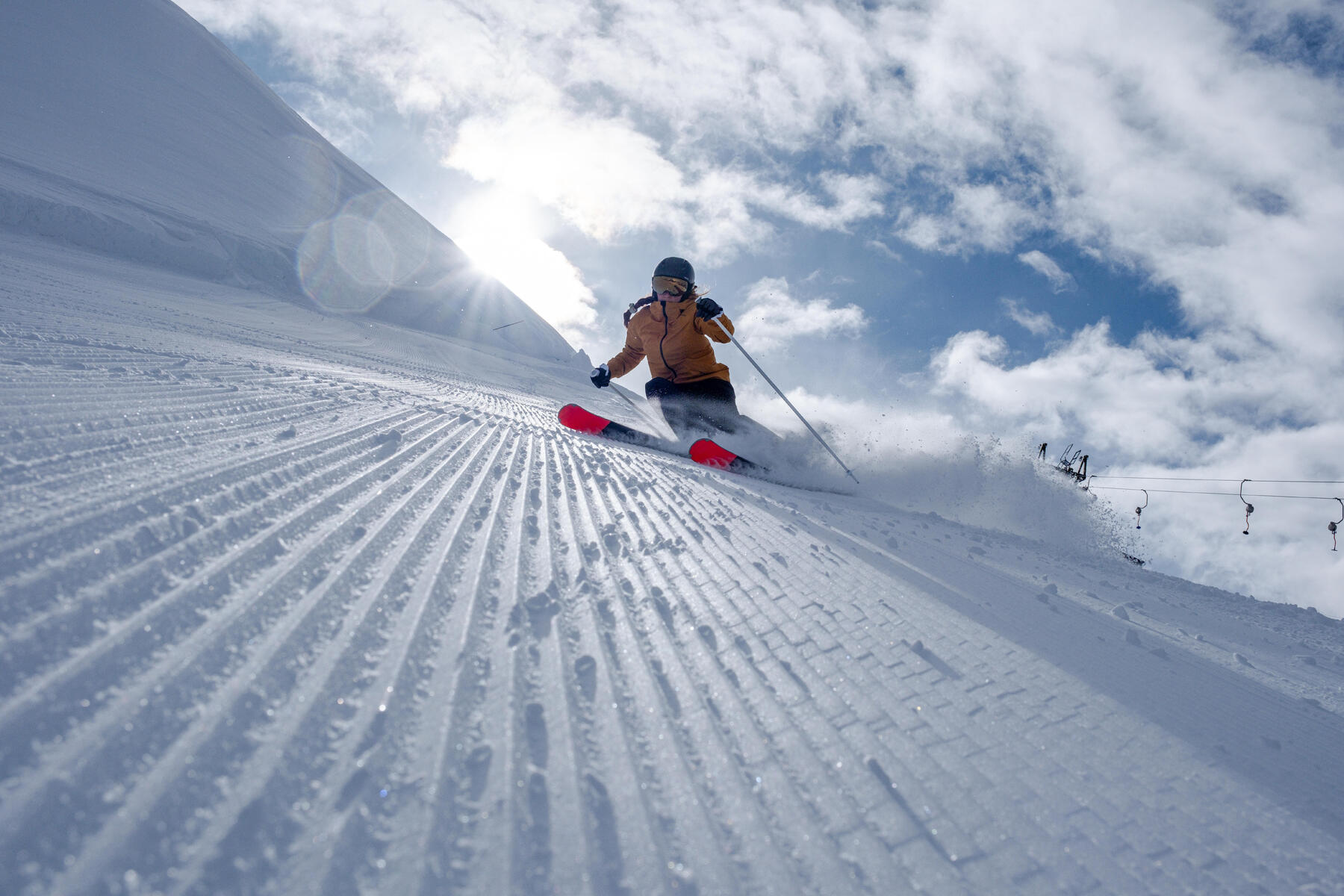
In Alpine skiing, although there is physical exertion involved, it’s generally less intense than for activities such as cross-country skiing. Skiers can quickly feel cold on chairlifts, hence the importance of choosing warmer clothing.
That’s why it’s recommended to opt for a classic ski pullover or under garment, which offers an excellent warmth - breathability - freedom-of-movement trade-off. Merino wool and down are ideal components for this type of sports activity.
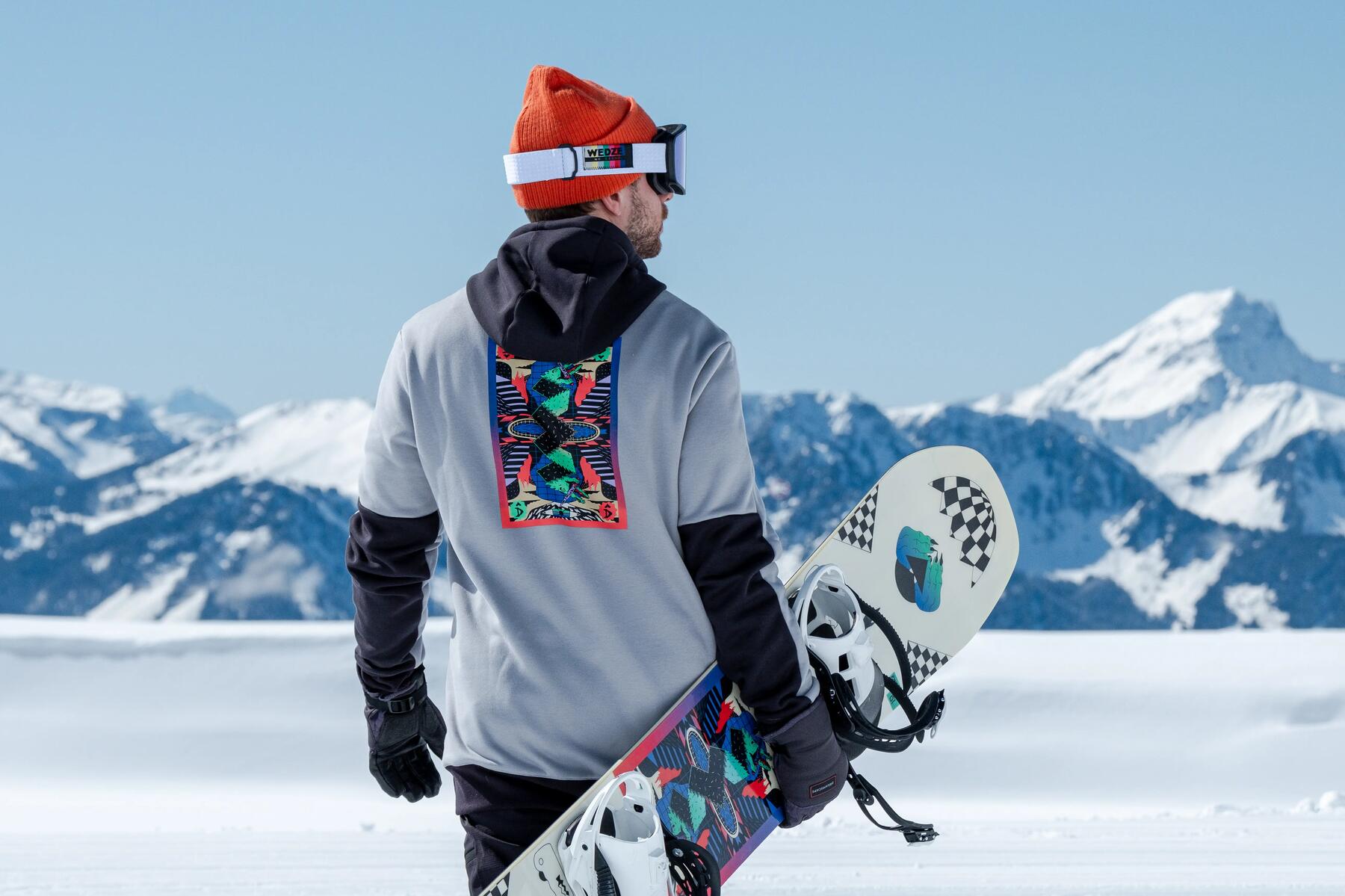
Although in snowboarding the intensity of the physical activity is similar to that of Alpine skiing, it’s important to note that the codes in terms of style differ to some extent. Snowboarding is characterised by a more relaxed culture, and a lifestyle favouring individual expression. Riders often favour loose-fitting outfits, and their second layer will generally be a hoodie, offering comfort, style and freedom of movement.
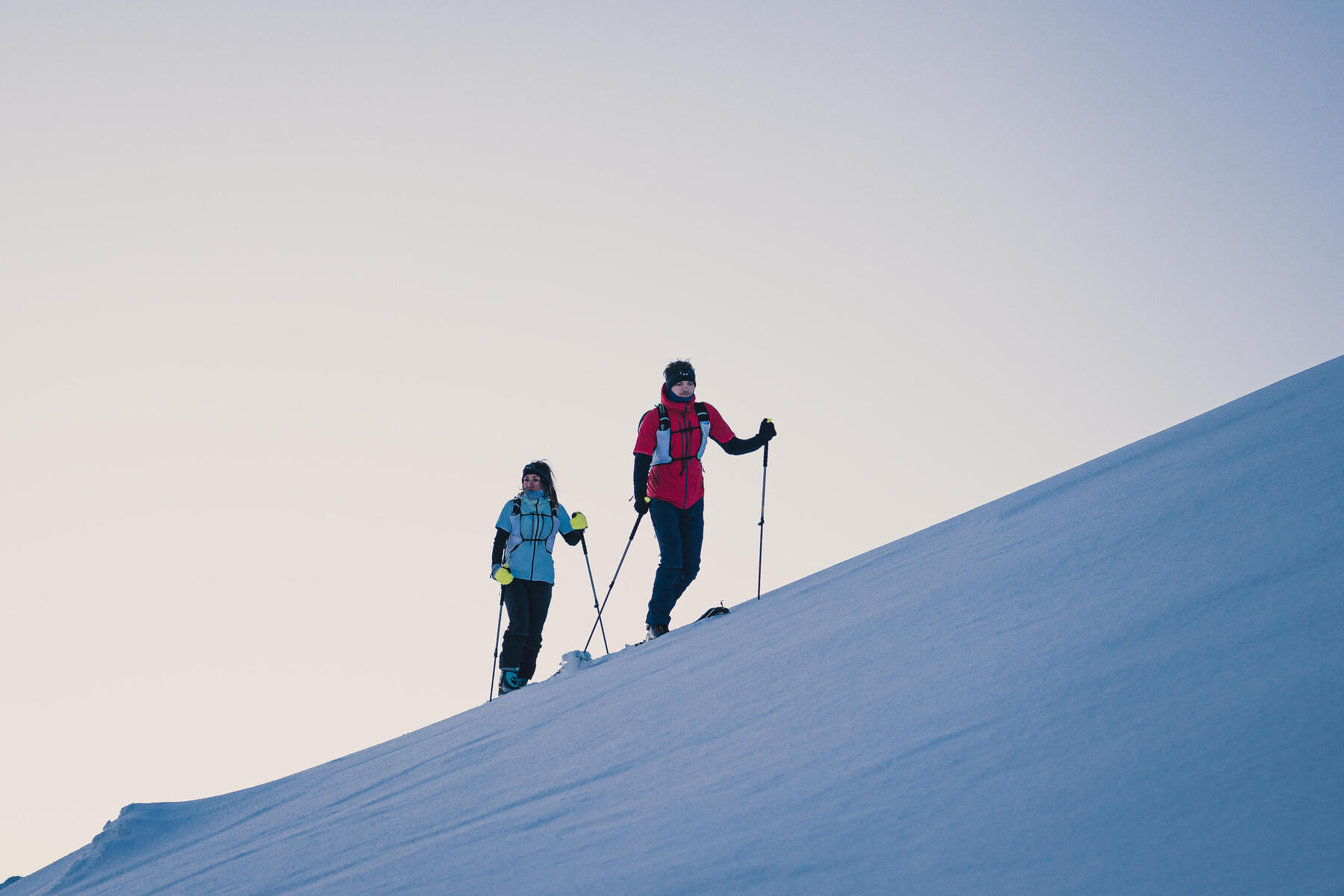
Cross-country skiing or splitboarding are sports that require a much greater level of physical exertion than Alpine skiing, since ski lifts are not part of the equation.
The base layer you should go for must be aligned with the level of physical exertion, while also offering comfort and protection from the cold. The combination of breathable materials, a fitted cut and ventilation function is vital to allow you to fully enjoy your mountain experience. To optimise comfort during physical activity, we advise you to opt for a base layer with a full-length central zip. This type of zip allows you to take off or put on garments easily, depending on weather changes taking place. The short-sleeved vest, specifically designed for intensive cross-country skiing, is also a good option for those who tend to sweat a lot, or for practice during spring.
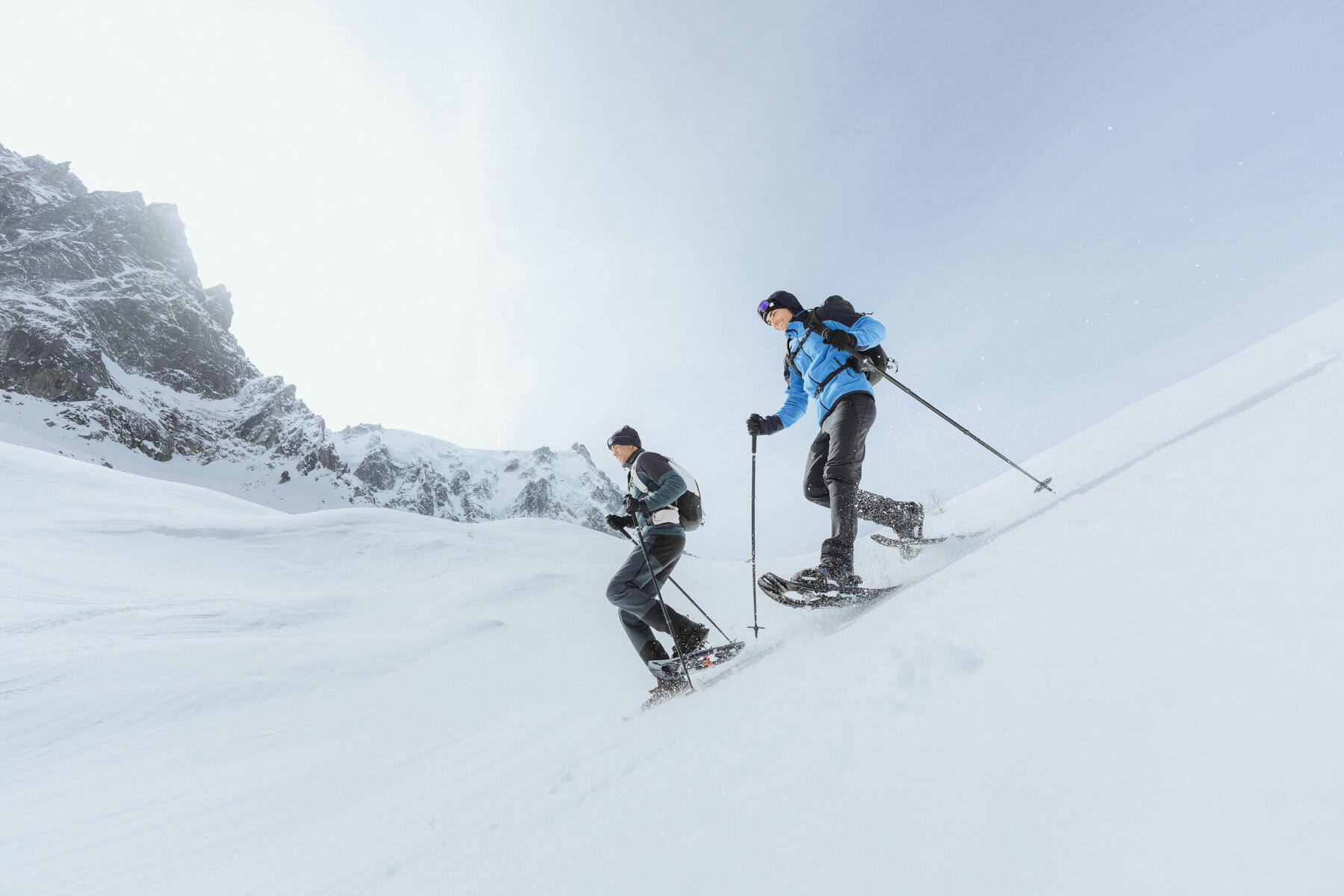
Like cross-country skiing, snowshoeing and sledging are winter sports that are practised without ski lifts. If you’re a fan of these types of sports experiences, we advise you to wear a second layer that’s both warm and breathable, and that favours freedom of movement. Here too, opt for the full-zip opening, so that you can easily remove the jacket to store it in your backpack in the event of a sudden feeling of getting too hot.
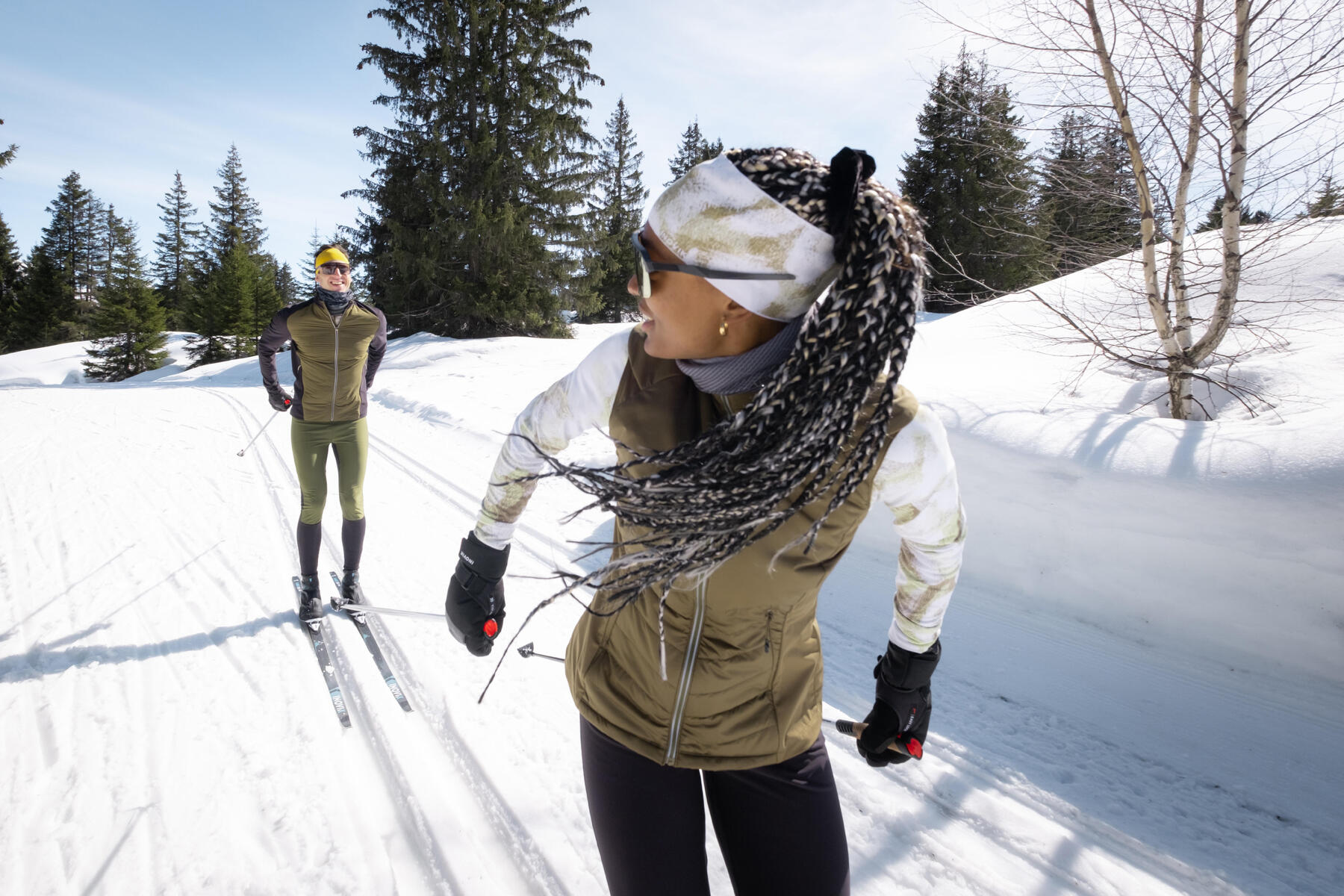
In cross-country skiing, there’s a high level of physical exertion. That’s why cross-country skiers need particularly breathable thermal base layers, and a second layer that’s warm, highly breathable and allows extreme freedom of movement. We recommend the sleeveless vest (to be worn over your thermal base layer), to add warmth to the upper body and chest, while also allowing the armpits and arms to breathe. The sleeveless vest is water-repellent and windproof, so it can serve as both a second and third layer in good weather.

To enjoy the snow on foot, we recommend a fleece jacket designed for temperatures below 4°C. At Decathlon, our warmest fleece jackets for hiking are the SH900 women’s and SH900 men’s. Are you expecting variation in terms of temperature and level of exertion? Consider opting for a technical fleece jacket, capable of providing you with air and breathability, such as our Quechua MH500 kids’ designs with zip, and men’s and women’s hoodie models.
For those who are particularly sensitive to the cold, there are two types of garments to consider for under the ski jacket:
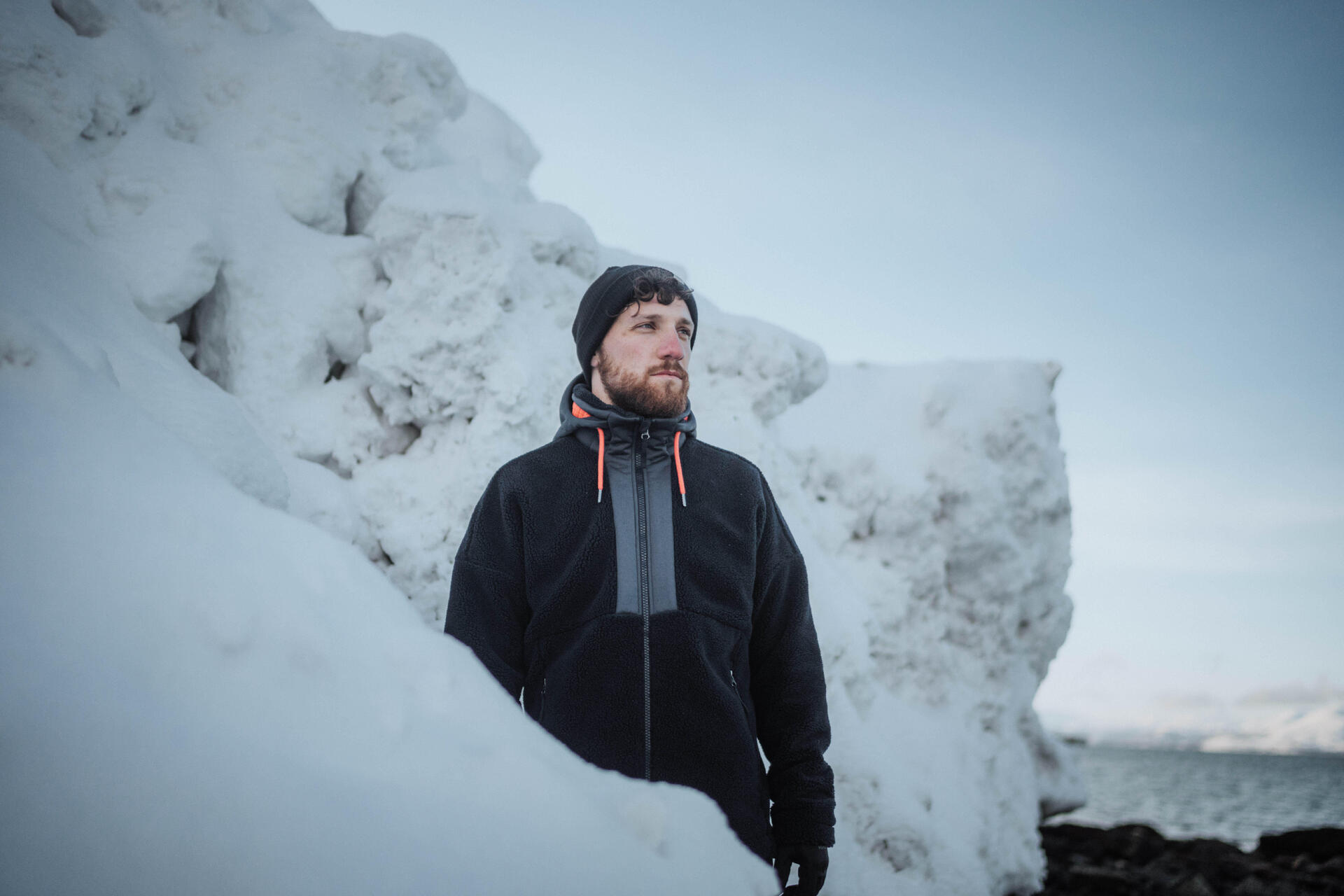
The warm ski fleece
With a high grammage, the fleece is an excellent option for providing maximum warmth. Some fleeces are specially designed to cope with very cold temperatures, making them the ideal choice for those who particularly feel the cold. There are several different fleece options available, for both young and old!
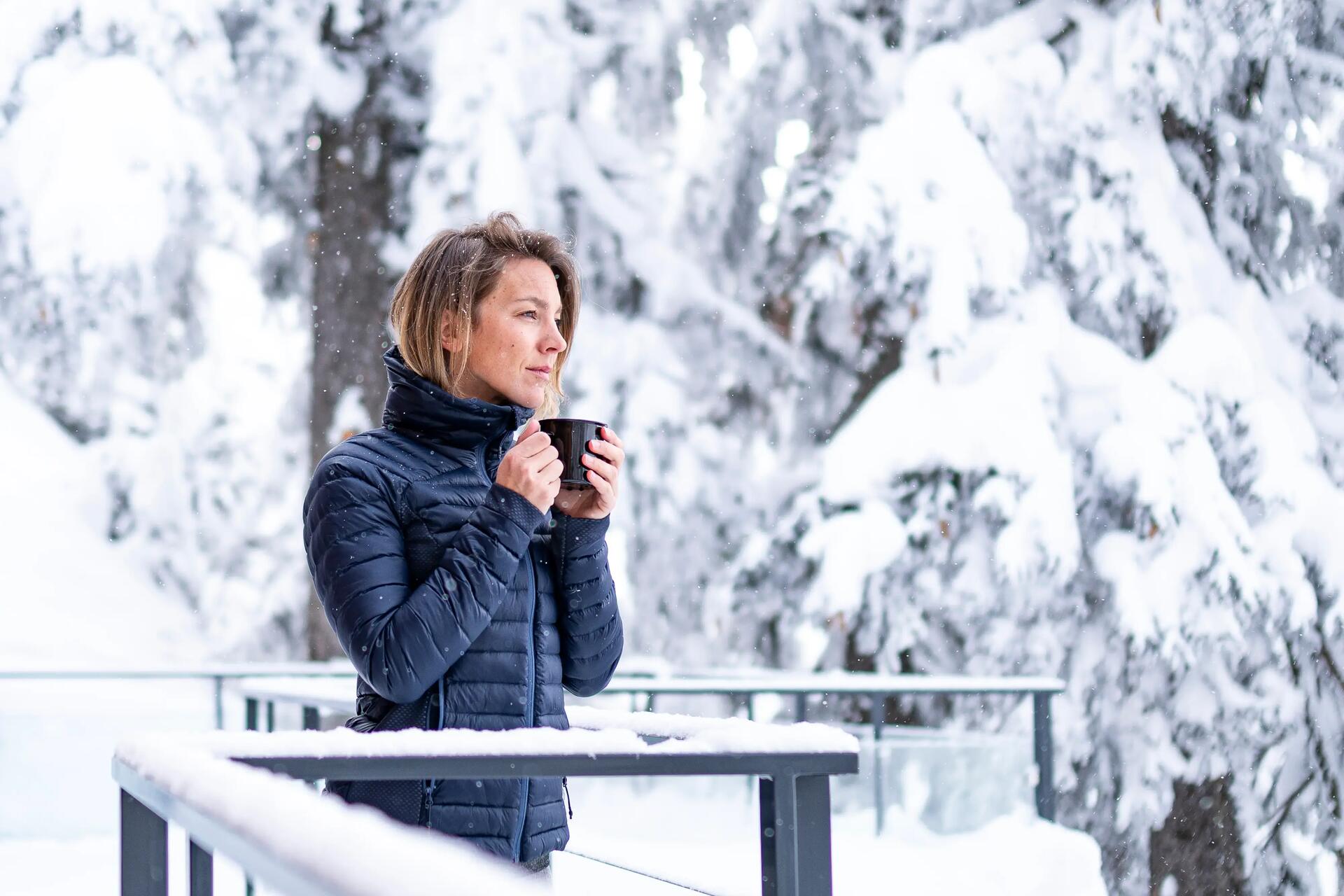
The down jacket
The major advantage of the down jacket lies in its swelling power, which determines its ability to thermally insulate by trapping air. The volume of air trapped by the down offers excellent thermal insulation, adding a precious layer of warmth. And all this, without adding weight or bulk under the ski jacket, allowing you to stay comfortable and optimally protected, even in the coldest conditions.
Now you know all the secrets to the fabrics and cuts used on ski pullovers for mountain sports in winter. All you have to now do is choose the product that best suits your expectations and preferences!